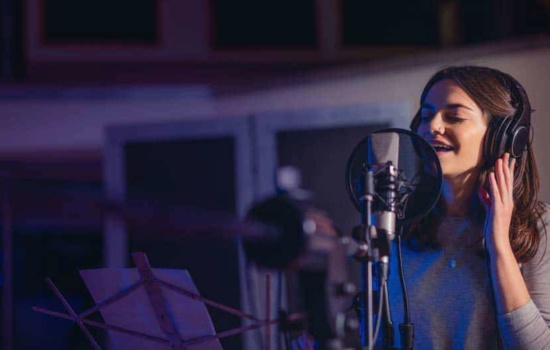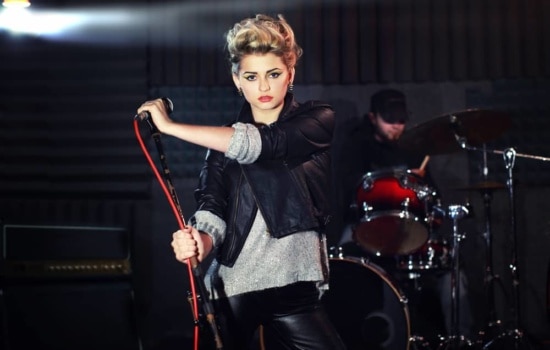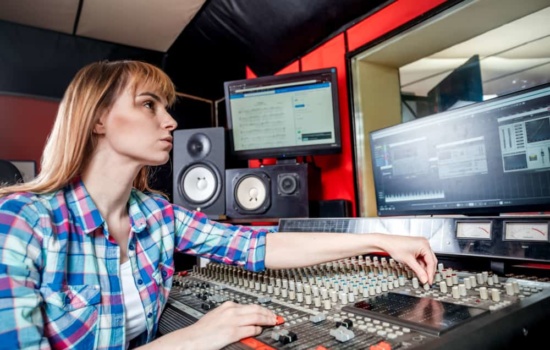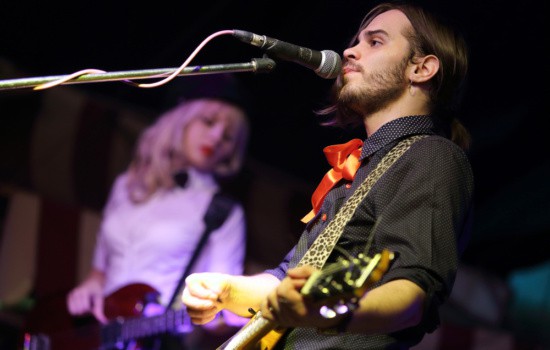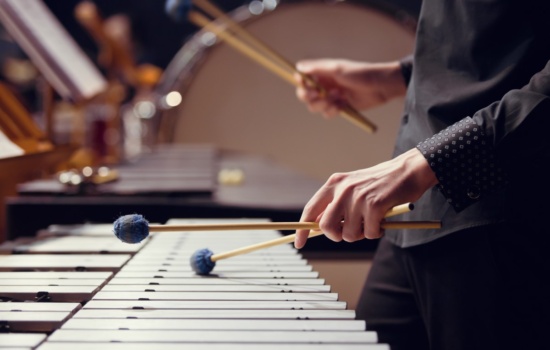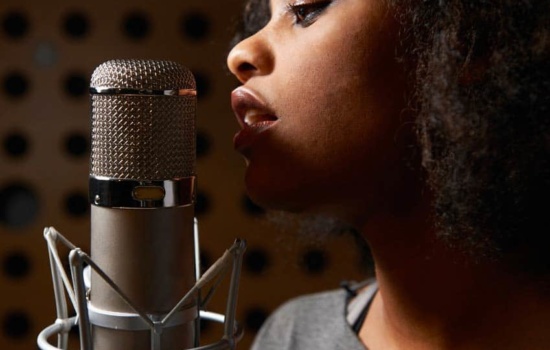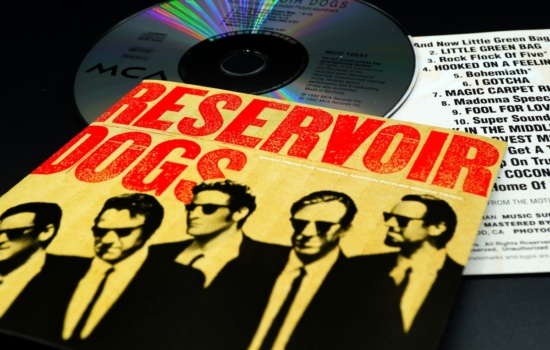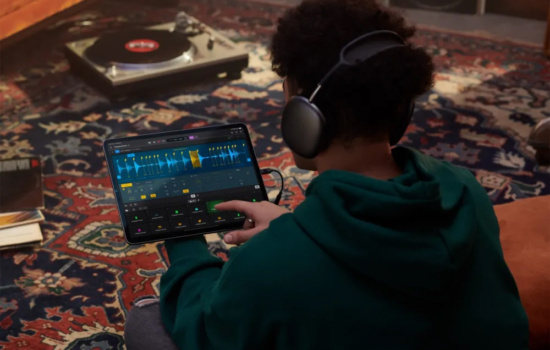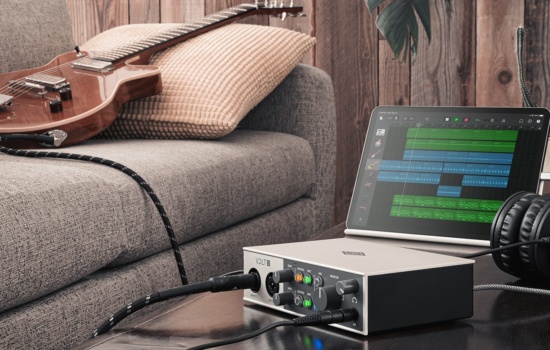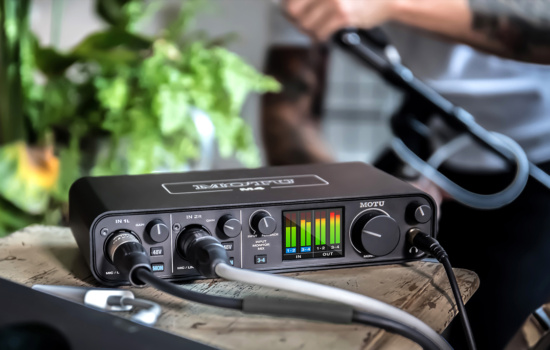Concert Promoter

How To Become a Concert Promoter
People also ask
Career Description
San Francisco Concert Promoter Robbie Kowal of HUSHConcerts says, “I like to say we’re not in the music business, we’re in the people business. Bill Graham used to be famous for saying that. Our job is taking care of the boring stuff behind the scenes so madness can ensue. What does that mean?
“We have broken it down to anywhere from sixty to eighty individual tasks to be done to run a successful show. Each one of these details is no more important than the others. For instance, there’s getting the right artist and the right venue, making an offer to the artist, agreeing to a deal with the artist, booking support, getting the artwork done and approved, and building the marketing and advertising plan.
“Then you start getting into twenty different tasks just in marketing, [including] four different things on Facebook, and knowing how to use your own email list most effectively. All these different things go into promotion of the show. You have to do the hotels, ground transport, backline, get them the schedule of load in and load out times, all those production things.
“Any one of them, if done incorrectly, can shut down the entire show. When the artist is flying in and your guy isn’t there to pick them up, the artist will be pissed. That’s a problem.
“[It’s the same] if you use the wrong photo or misspell something in the flier. If you pick the wrong date, artist, or venue, that can change everything too. At the show itself, maybe the sound isn’t mixed right or the lighting isn’t arranged the way the artist wants it. It’s very detail-oriented and math-driven.”
Since Concert Promoters have a hand in all aspects of throwing an event, they work with a wide variety of people, including Talent Buyers, Personal Managers, Booking Agents, Nightclub Managers, DJs, Club Promoters, Poster Artists, Public Relations Counselor, Advance Person, Tour Publicist, musicians, and Lighting Technicians.
What does a concert promoter do?
Concert promoters play a pivotal role in the live music industry by orchestrating and overseeing the various elements involved in staging a successful concert or a similar kind of event. At the core of their responsibilities is the intricate task of liaising between artists, venues, and other stakeholders to bring live music experiences to audiences. It sounds simple enough, but it is far from it.
Concert promoters are essentially the architects of almost every concert. They’re responsible for negotiating contracts with artists and their teams, securing suitable venues, and meticulously planning logistical details such as ticketing, sound engineering, and stage setup. They navigate the ever-changing landscape of the music industry, utilizing their (hopefully) keen understanding of audience preferences and market trends to curate events that resonate with large crowds that should, in theory, make everyone involved money.
Salary
The average annual salary for a Concert Promoter is approximately $78,600. Concert Manager salaries can range from $28,000 to $187,000.
“We never made what people consider a full-time salary until very recently,” Kowal says. His experience is not atypical. He says, “An independent Promoter gambles on every show they do. If the band gets paid in advance and the club gets paid, we only get paid after everybody else gets paid out.”
“It took years and years to get it right. Small-scale concert promotion is the riskiest role in the entire business. Anybody can do it, but to build a sustainable business is very difficult. All the successful Promoters who make money have some other source of income that helps to support it.”
“Another Planet, for example, own the Independent, have exclusive booking arrangements with the Fox Theater and get the bar at the Fox Theater — no matter what happens to the Promoters, the bar always makes money. As an independent Promoter, there are certainly times at a club where you’ll get part of the bar but it’s very rare.”
Do concert promoters make money?
Concert promoters have the potential to generate serious revenue…though it’s not a guarantee. One primary source of income for concert promoters is the profit earned from ticket sales. Promoters negotiate deals with artists and venues, calculating the budget for the event and determining ticket prices to cover costs while ensuring a profit margin.
Additionally, promoters may earn revenue through sponsorships and partnerships with brands looking to align themselves with specific events or genres. While some of that money may go to the promoter, the musicians themselves, as well as the venue, from time to time, may also insist on getting in on that action.
Furthermore, savvy concert promoters diversify their income streams by exploring ancillary financial avenues. This can include merchandise sales at events, concession deals, and even streaming rights for live performances.
It’s important to note that a concert promoter’s financial success depends on factors such as the popularity of the artist, the efficiency of event planning, and the ability to effectively market and promote the concerts. While there are potential financial rewards, the industry also carries inherent risks, and success often requires a combination of business acumen, industry connections, and a deep understanding of the ever-evolving dynamics of the live music landscape.
Hey, what do you think about trying our new Music Career HelperMusic Career Helper really quick? It’s totally free and could help get your career moving fast! Give it a try. It’s totally free and you have nothing to lose.
Career Outlook
Concert Promoters handle business activities during the day and spend evenings and weekends at shows — both their own and those put on by others. For many, though, concert promotion isn’t the only way they earn a living.
Kowal says, “I do like four or five things in music to make a living. It’s just like being a guy in a band; he’ll play in another band, he’ll teach lessons. If you really want to do this, you have to be willing to do anything and that’s the first point I would make.
“It’s one of those things everyone wants to do like being the quarterback of the Denver Broncos or something. If you want to be that person you have to not only have talent but you have to work harder, work longer hours, do the things people won’t. If you’re not willing to work hard you should look elsewhere. There are probably people who just walk into stuff but they’re certainly the exception.”
The nature of the business itself is turbulent. Kowal says, “Even if you think everything will go right with a hot band, a hot club, and a great night, it can go wrong. Some Promoters really play nasty with each other and actively try to put each other out of business but luckily not in my market. If people are at your show, they’re not going to be at theirs.
“The way things are working today with dance music talent, it used to take three or four years for an artist to establish themselves and sell out a club. Today with social media an artist can put out a track on YouTube, it picks up steam on SoundCloud and pretty soon they have the ability to sell 500 tickets.”
“The Promoters and Talent Buyers have never even heard of the guy; the Booking Agent calls us and says ‘this guy is super hot.’ [We put on the show and] we do well, but next time maybe he’s not as hot. The up-and-down is tough.”
Who is the largest concert promoter?
Live Nation Entertainment is widely recognized as the largest concert promoter globally. Live Nation is a prominent entertainment company that operates in various aspects of the live music and events industry, and some would call them a monopoly of sorts. They are involved in concert promotion, ticket sales, artist management, and venue operations. Live Nation’s dominance extends to many countries, and its is known for organizing a vast number of concerts and events featuring a diverse range of artists and genres.
Career Path
Advancement in this career means booking bigger name acts, pulling in more money, and ultimately, being able to make your living off concert promotion. Most Promoters begin their careers as Interns with a concert promotion company, serving as Assistants, then throwing their own small-scale gigs. Others start as performers themselves.
Kowal explains his own career trajectory: “I was a touring DJ for a long time before I became a Concert Promoter. [HUSH co-founder] John and I met because he was booking me as a DJ and at the time I had this DJ residency at this really small bar. It was aimed at funk and soul geeks and every week I’d make a little newsletter to put on the bar so people would know what I was concentrating on that week.
“People started emailing me to find out what was going on and before I knew it I had thousands of followers. Before I knew it I had the power to deliver human beings to a club and I had venues. (The neat part was I could get into shows for free and they’d also book me to DJ.)
“John Miles, who was a little more advanced than me [in his career], was promoting at a few tiny bars and clubs. He would book me to DJ and see I was delivering and drawing in people through my newsletter so we talked about it and decided ‘Why don’t we put some shows on together?’
“Early on it was really simple. I would book the bands and DJ; people would show up or not show up. I had the idea I wanted to put on a funk festival. I had read this book about what funk really means and I wanted to put on a festival that spoke to that. It was pretty naive and ambitious.
“In 2001 I was still working a day job to support myself and right around August 2001 John and I found a guy who would give us $10,000 to put on a funk festival. We decided to do it and started working on it. John was already a Production Manager for a local jazz festival so he knew how to do stuff like that.
“I quit my day job on September 5th, 2001 and we know what happened on September 11th. We went from ‘hey, we’re launching a funk festival at the perfect time’ to ‘we’re launching a festival and starting a company at a time when people really don’t want to party.’
“The whole landscape changed. It’s an incredibly risky business. So many things can go wrong. It wasn’t like I could go back and get another day job; I really had to stick it out because there wasn’t anything available. We were very poor for a very, very long time.”
To land a first job in concert promotion, Kowal advises “the first thing to do is build a resume. Don’t even reach out till you know how to use Photoshop, how to use Excel and writing. Start your own blog or contribute to one so you know how to create copy and content. With the people who come to us and write for blogs, I can read their work, and these skills are invaluable to someone like me.
“[On the other hand] I’ve had people come to us and show us their resume and they don’t have the skillset yet. I say, ‘Go out and learn these things.’ They come back, and at this point, I don’t have time. Either come to me with these skills or it’s useless to me. It’s amazing when someone comes to us and has those skills and I don’t have to teach them.”
“Build those skills first, go to a lot of shows and find out which club you want to work for or which Promoters. Where would you want to spend your time? You can find out a lot.
“Some people don’t even think about that stuff and are like ‘I’ll take anything.’ You should think about that stuff because your life could change tomorrow. Make sure you’re spending your very precious time on this earth with people you want to spend time working with, in the places you want to be doing it, even if it means you have to wait longer.”
“Make some art. Learn how to get a good picture in a nightclub. Learn how to create content. Learning how to promote is communicating to people and learning how to create great content is a key part of that communication. Start a blog on what happens in bars at your college, or start the coolest blog on the music scene around your college.”
“Learning how to create great photos and turning that into Facebook posts or something is the difference, in some cases, between an internship and a job — and it’s fun. Whatever you’ve created, you’ve done essentially what I did with my newsletter twenty years ago.”
“I wanted people to come out and see me DJ, so I taught myself Photoshop and graphic design and designed pretty much 60% of our art. You can easily tell I never had graphic design training so some of it sucks but it saved us $250 a show and that’s real.”
“Learn now to be a performer of one kind or another — whether it’s learning to DJ or play guitar. To some degree, as Promoters our job is a sacred responsibility. Take the time to learn how difficult it is to play music (and especially in front of other people); it takes years or months.”
“You want to learn that process so when someone comes to play, you can help set up their gear or at least know what they’re going through. The people who come to work for me have to maintain that standard. We don’t slack because doing so would be letting the artist down.”
“We have a responsibility to the artists who put their careers in our hands. Understanding that artistic process is really important. Ex-musicians can sometimes be very good production professionals. They get the gravity of what we’re trying to do.”
How To Get Started
Diving into a career as a concert promoter opens the door to an exhilarating journey within the music industry. If you’re fueled by a passion for music and a desire to orchestrate unforgettable experiences, here are a few ways you get started. Of course, there’s no one right way to find a path into this field, but these are a great launching point.
- Start your own company
- Volunteer for nonprofits organizing concerts
- Take on an internship
- Find an entry-level position at an independent concert booking company
Consider taking the entrepreneurial route by establishing your own concert promotion company. This option provides the ultimate creative freedom, but demands a comprehensive understanding of the industry, strong networking skills, and a willingness to navigate the challenges of running a business. Okay, so this isn’t the best way to begin this journey, but it’s also not out of the question–especially for those with some experience.
Get hands-on experience by volunteering for nonprofit organizations that organize concerts or events. This not only allows you to immerse yourself in the practical aspects of concert promotion, but also offers a chance to build connections within the industry. It’s probably easier to find a role at a charity than in a for-profit firm, so volunteering can be an ideal beginning.
Seek out internships with established concert promoters or entertainment companies. Internships provide a structured learning environment, allowing you to grasp the nuances of the industry, develop valuable skills, and build a foundation for your future endeavors. Just like volunteer positions, these may be an easier way in when you’re just getting started and don’t have enough experience to find a full-time career.
If you think you’ve got the goods to be attractive to a company, feel free to look for entry-level positions with independent concert booking firms. These roles may involve tasks such as assisting with logistics, coordinating events, and learning the ropes of the concert promotion business from experienced professionals. It’s a hands-on approach that lets you learn while contributing to the success of live events.
Whichever path you choose, remember that persistence and a proactive approach are key. Attend industry events, network with professionals, and stay abreast of industry trends. The journey to becoming an independent concert promoter is as much about learning from experiences as it is about building relationships and a solid foundation in the multifaceted world of live music promotion.
What is the difference between a concert promoter and a producer?
The roles of a concert promoter and a producer in the music industry, while slightly related, involve very different responsibilities. A concert promoter is primarily responsible for organizing and promoting live events, such as concerts and music festivals. Their tasks include negotiating contracts with artists, securing venues, managing logistics, and marketing the event to attract an audience. Concert promoters are the driving force behind bringing live music experiences to the public.
On the other hand, a producer in the music industry typically focuses on the creation and recording of music. Producers work closely with artists in the studio, guiding the recording process, and overseeing the technical aspects of music production. Their responsibilities can include selecting and arranging songs, working with session musicians, and ensuring the overall quality and artistic vision of the recorded material. While producers contribute significantly to the creation of music, their role is more centered on the studio and the production of audio recordings than anything to do with a live show.
Experience & Skills
In addition to writing skills, Kowal says “there are some basic software things you can do” to make yourself competitive. “Become an expert in Excel. It’s everywhere in our industry and you basically have a bunch of people who are shitty at math having to do a lot of math. That’s why Excel is our friend.
“It’s something people could get really good at before coming to work. You have to know how to read a spreadsheet, how to read a contract and look for where those poison pills are in the contract. If you don’t catch those things you’re screwed.”
Also important: “Graphic design training or having a familiarity with Photoshop at the very least. [Learn] Illustrator if possible, because you never know when you’re going to have to make your own art or resize someone else’s. Quickbooks is pretty important. [Although] some companies use it and some don’t.
“Go to a lot of concerts of all different kinds, not just the kind you like. Go to a rock show, a classical performance, a jazz show, an EDM festival. Go and stand back maybe fifty feet to the side of the stage, diagonally, and watch what happens between the sets. The artist finishes. What happens when the artist comes offstage and the next comes on?
“Look at the fencing, where the security is, who’s driving around in golf carts and what they’re doing, watch the Bartenders for a while and see how many people they serve in a minute and count it. Break it down in those little details because when you get your first internship or assistantship, those things are really important.”
“I can’t teach that to someone; they have to learn it themselves. Go to a show and watch the business operations of the show. But if you don’t really want to be a Promoter, don’t do that — because once you start looking at shows that way it’s hard to go back to just enjoying the show.”
“We need people who are very detail-oriented,” Kowal says. “There are essentially three different kinds of Promoters. [There are] the ones who made a bunch of money selling weed and want to throw a party.
“[There are] the ones who are paid to party with people and deliver bodies to a club; you see it more in New York City or Los Angeles. (Clubs are clubs. It doesn’t matter who’s playing, people just want to go there.)
“Then you get the live music model that’s essentially music-driven. That’s a lot more tricky because you need to find the specific audience for that kind of music and get them to come out.”
“You have to not only be passionate about it, but very disciplined. You have to love the music and have a gut instinct for what other people like. When I started I thought it would be super fun and all about the passion of it, but what I didn’t realize at the time is this is probably the most business management training anyone could ever want.”
“You get management training and learn how to manage a staff of volunteers, plus marketing management.”
- Think Critically At Concerts
- Terminology
- Talk To People
Becoming an independent concert promoter is not just about enjoying the music–it’s about honing a critical perspective that will set you apart in the world of live events. Attending concerts with a discerning eye is not merely an exercise in observation, it’s a strategic approach to understanding the nuances that make or break an event. Every detail, from the timing of performances to the intricacies of lighting, security measures, and the ticketing experience, contributes to the overall success of a concert.
Thinking critically at concerts is a crash course in event management, providing valuable insights into the logistical challenges and solutions that go unseen by the average attendee. By keenly observing the ebb and flow of a live event, you can gain an understanding of what works seamlessly and what might cause frustration for the ticket holders. This heightened awareness lays the groundwork for informed decision-making when you step into the role of a promoter.
Consider the timing of events, for instance. A well-paced schedule ensures a continuous flow of energy and entertainment, preventing moments of boredom that can disengage the audience. Through critical observation, you can discern the delicate balance required to keep the audience captivated from start to finish and balance that with the needs to the crew setting up for each musical act.
The lighting design is another facet that demands careful consideration. Beyond enhancing the visual spectacle, lighting sets the mood and can elevate the entire concert experience. As a promoter, this insight empowers you to collaborate effectively with lighting professionals, creating an immersive atmosphere that resonates with your audience.
Security is a paramount concern at any live event, and thinking critically about crowd management and safety measures will equip you to plan and execute events that prioritize the well-being of attendees. This understanding becomes particularly crucial when considering the logistics of larger-scale concerts, when crowds can become dangerous in the blink of an eye.
Watching the ticketing experience can shed light on potential pain points and areas for improvement. A seamless ticketing process contributes to the overall satisfaction of attendees, ensuring a positive first impression and encouraging repeat attendance. The worst case scenario for a promoter would be tickets not selling because of a technical issue or because the process is unwieldy.
In essence, thinking critically at concerts is a form of apprenticeship, an investment in your future as an independent concert promoter. It allows you to anticipate challenges, envision improvements, and, most importantly, appreciate the intricacies of live events. This mindset not only empowers you to innovate within the industry, but also helps you navigate the constraints and realities that may limit certain changes.
Finding a mentor or working for a concert promoter is a great way to learn the ins and outs of the concert promoting industry, but it’s not the only option. If you don’t have anyone to teach you these things–or even if you do–thinking critically when attending shows can be one of the best educations in this exciting field.
As with any industry, there are a lot of words, phrases, and terms that are used commonly when it comes to booking concerts that might not be familiar to those who aren’t in that world. There are too many to list all of them that might come up in someone’s journey to becoming a concert promoter, but here are 20 that are especially important or which are commonly used.
Advance – A payment made to artists or their representatives before the actual event, typically a percentage of the agreed-upon fee, to secure their commitment.
Box Office Split – An agreement between the concert promoter and the venue on how ticket revenue is divided, typically expressed as a percentage.
Concession Agreement – A contractual arrangement between the concert promoter and vendors for the sale of food, beverages, and other goods at the event venue.
Dead Day – A day in the schedule without any events, allowing for setup or teardown activities, essential for managing tour logistics effectively.
Event Insurance – Insurance coverage that protects against potential losses or liabilities associated with organizing and hosting a concert.
Gate Receipts – The total revenue generated from ticket sales at the venue’s entrance, a key factor in calculating the overall success of an event.
Guarantee – The minimum payment agreed upon for the artist, irrespective of the actual ticket sales or revenue generated by the event.
House Lights – The general lighting in a venue, usually dimmed during performances and raised during breaks or intermissions.
Load-Bearing Capacity – The maximum weight a venue’s stage or structure can support, crucial for ensuring safety during performances with heavy equipment.
Load-In Crew – The team responsible for transporting and setting up equipment and stage elements for a concert.
Load-In/Load-Out – The process of bringing equipment into and out of the venue before and after a concert.
Radius Clause – A contractual agreement limiting an artist from performing within a specific geographic radius for a specified period before and after a scheduled event.
Rider – A set of contractual requirements requested by an artist, covering specific needs such as technical equipment, backstage amenities, or catering.
Secondary Market – The resale market for event tickets outside of the official primary ticketing platform.
Settlement – The final financial reconciliation between the concert promoter and the artist, covering fees, expenses, and any other financial agreements.
Soundcheck – A rehearsal session before a concert where the audio equipment and levels are tested to ensure optimal sound quality during the performance.
Technical Rider – A section of the contract detailing the technical requirements for a performance, including sound, lighting, and stage specifications.
Ticket Scalping – The unauthorized resale of event tickets, often at inflated prices, by individuals or entities not associated with the official ticketing process.
Tour Routing – The strategic planning of concert dates and locations for an artist’s tour to optimize travel, costs, and audience reach.
Venue Capacity – The maximum number of attendees a venue can accommodate legally and safely, a crucial factor in planning and promoting events.
Embarking on a journey as a concert promoter requires more than just a passion for music–it demands a nuanced understanding of the industry’s inner workings. One of the most invaluable resources at your disposal is the wisdom of those already entrenched in the field. Engaging in candid conversations with seasoned professionals can provide unique insights, guidance, and a realistic perspective on the challenges and triumphs of concert promotion.
When you talk to industry veterans, ask about their beginnings. Enquire about the paths they took to enter the world of concert promotion. Discovering the diverse routes people have taken can offer inspiration and help you tailor your own approach. Delve into the skills they found crucial for success, and ask about the ones they wish they had possessed when starting out. This insider knowledge is akin to a compass, steering you away from potential pitfalls and guiding you towards honing the skills that truly matter in the live music event landscape.
Professionals in the industry often have unique stories about surprises and unexpected lessons learned along the way. Understanding the unforeseen challenges they encountered and overcame provides you with a practical education that textbooks can’t offer.
Additionally, reach out and ask to talk about their perspectives on the future of the concert promotion industry. Industry veterans can offer valuable foresight into emerging trends, technological shifts, and evolving audience expectations, allowing you to position yourself strategically and adapt to the ever-changing landscape.
Education & Training
Not all Concert Promoters go to college, but the academic training, internship opportunities and networking possibilities can be tremendously helpful. For example, Kowal says to be successful in his industry “the first thing is writing. Learn how to write. I don’t mean 140 characters and I don’t mean a blog post.
“Learn how to write a press release and effectively communicate in long-form. Turn it into short form and then into shorter form so it works for whatever the outlet is. Learning how to write teaches you how to organize your thoughts and effectively communicate a point and in the case of a show, your point is why you should spend money to go see this band.
“I’ve had people come to work with me who can’t write a complete sentence and they don’t last very long. Read books, not just magazines, and take communication classes. Learn how to write copy. That’s incredibly useful in concert promotion.”
However, much of the education required to be a successful Concert Promoter is learned only through trial and error while on the job. Kowal says this includes “learning how to be cautious, to really do the math, then just trust your gut. Really the only power the Promoter has is to pass, to walk away if the Agent wants too much money or something.
“Let somebody else take that stupid deal. Everyone wants to do the shows they want to do and thinks their taste is everyone else’s taste but it’s just not true. And it’s a really good way to lose a ton of money really quickly.
“My advice to anyone who wants to be an independent Promoter is 1) don’t do it and 2) intern with a small company or small club and learn how the real world works. If you go to a big company you’ll be opening mail or answering phones.”
“If you intern with someone like us you’ll learn how promotion and production really work. Then throw a party, see what works. Do a small party so if you lose all that money you’ll be ok. [Do it] just to see if you like it.”
Additional Resources
Promoters usually aren’t members of a union or association but professional opportunities for networking exist via conferences such as PollStar Live!, Aspen Live, and IEBA.
FAQ
What is the single biggest suggestion you would give to someone wanting to get into this career?
“Build your skill set while you have time. You know how they say guitarists have to go out to the woodshed and practice for a year before they go on stage? [You should] woodshed. Know how to shoot photos, set up a DJ booth, etc. Theoretically, you should also have some job experience so we know you know how to show up to work on time.”
“The most important thing is the ability to communicate and make a point; that comes from reading books and writing. Anyone who wants to get into this business has to read certain books like How Music Works by David Byrne. The second book is Bill Graham Presents, the official autobiography of Bill Graham, the guy who created our industry.”
“Mansion on the Hill is about David Geffen and Neil Young; it’s a look at the modern concert industry and where it came from in terms of record labels. There’s Last Night a DJ Saved My Life for dance music.”
“Those books will give you an idea of what we do and if you want to do it. I recommend David Byrne’s book to anybody; it’s about how scenes work and so on. All these books are fun to read and fascinating.”
What’s the #1 mistake people make when trying to get into this career?
“Throwing a show before they’re ready. There are more people trying to do it than can. There are people who’ve been around for a long time who have the relationships you don’t and you’ll be left with lesser choices. That’s the biggest mistake people make, when they’re like, ‘I just want to throw this party. I know it’s going to work.’
“They lose a lot of money and it’s the last thing they ever do. Make a real budget and a real spreadsheet. Do the math beforehand.”
“Or, they go too big too soon. Agents and Managers prey on people like that. Before you do anything, go to work for a club or a small Promoter. Book a small show, and learn how to do it on a small scale with very little risk. Do your own little thing before you try to do something bigger.”
“The skills are the same for the small shows as the big shows and sometimes you can even learn more. You learn what people’s expectations are and how to manage them, how to build culture and a community. Do something cheap and small and not risky.”
If you could describe in one word what makes you successful, what would it be?
“I would say focus. It’s not just one word. Focus, detail-orientation, and humility. Humility is so important. Everything I’m telling you has been learned through making some bitter mistakes and through knowing how your situation changes constantly.”
“How we used to do it may not be relevant today, so you have to maintain humility and know the twenty-year-old kid who walks into your office for an internship may know more about marketing to a certain audience than you do. I embrace that and I love that about this job.”
“I love learning from people who are hungry and love music and want to make things happen. They’re like me twenty years ago. They love the music and the culture. It’s like, ‘what can you bring to the table?’ It’s not like, ‘I’m the boss.’ It’s an attitude of shared empathy and perseverance.”
Sources
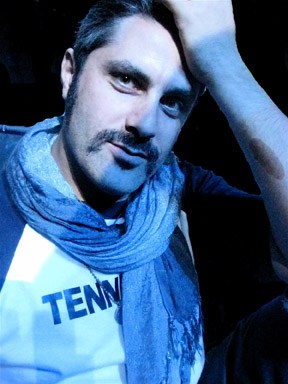
Robbie Kowal
Concert Promoter Robbie Kowal is the Founder/Creative Director of San Francisco Bay area concert promotion company HUSHconcerts. They have hosted shows by Flaming Lips, Flying Lotus, The Orb, Giorgio Moroder and Wu-Tang Clan — to name just a few. HUSH is well-known in the Bay area for organizing the SF Funk Festival, Sea of Dreams, and North Beach Jazz Fest.
In 2006, Kowal was the first DJ to ever play a silent disco in the US, at that year’s Bonnaroo festival. Kowal makes music as Motion Potion; his latest project is Subterranean Homemade Alchemy, an album of Radiohead remixes, edits, and mashups, with all proceeds going to charity. His work as a Promoter has been featured in the LA Times, San Francisco Examiner, SF Weekly, LA Mag, and Billboard.
References
- 1Multiple. "Concert Promoter Salary". Comparably. published: . retrieved on: Dec 16, 2019
